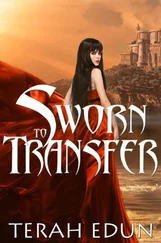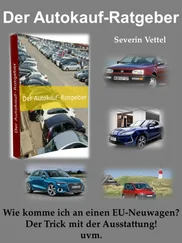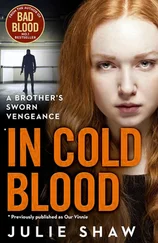I was wondering what I should do and where I should go, when a man whom I guessed was the local steward appeared. He had a list in his hand. 'Who are you?' he asked.
'Thorgils,' I replied.
He looked down his list, then said, 'Can't see your name here. Must have been a last-minute addition. Until I get this sorted out, you can go and help out Edgar.'
'Edgar?' I queried.
But the steward was already waving me away, too busy to explain details. He had pointed vaguely towards a side gate. Whoever Edgar was, it seemed that I would find him outside the palisade.
My satchel slung over my shoulder, I walked out through the gate. In the distance I could see a low wooden building, and a small cottage. I walked towards them and as I drew closer my heart sank. I heard the barking and hubbub of dogs and realised that I was approaching a kennel. Earlier, in Ireland, I had been dog boy to the Norse king, Sigtryggr of Dublin, and it had not been a success. I had been put in charge of two Irish wolfhounds and they had run away from me. Now I could hear at least a dozen dogs, maybe more, and smell their unmistakably pungent odour. It was beginning to rain, one of those sudden heavy showers so frequent in an English spring time, and I looked for somewhere to shelter. I did not want to risk being bitten, so I swerved aside and ran towards a small shed set close to the edge of the forest.
The door was not locked and I pulled it open. It was gloomy inside, the only light coming through cracks in walls made from loosely woven wattle. When my eyes had adjusted to the darkness, I saw that the shed was completely empty except for several stout posts driven into the earth floor, over which had been strewn a thin layer of sand. From each post extended a number of short wooden poles, covered with sacking or bound with leather, and sitting on the poles were birds. They ranged in size from scarcely bigger than my hand to a creature as large as a barnyard cockerel. The shed was eerily quiet. I heard only the distant howling of the dogs and the patter of rain on the thatched roof. The birds were silent, except for the occasional rustle of a wing and a scratching sound as they shifted their claws on the perches. I stepped forward to examine them more closely, gingerly treading past them as they turned their heads to follow my progress. I realised that they were following me by sound not by sight, for they were blind. Or rather, they could not see me because they were wearing leather hoods on their heads. Then I stopped dead in my tracks and a great wave of homesickness suddenly swept over me.
In front of me, sitting on a perch well away from the others, was a bird I recognised at once. Its feathers were pale grey, almost white, and speckled with blackish brown spots, like a sheet of parchment on which a scribe had sprinkled spots of ink. Even in the half-light I could see that, though hunched up and miserable, it was a spear falcon.
The spear falcons are princes among the birds of prey. As a child in Greenland I had seen these magnificent birds hunting ptarmigan on the moors, and our trappers occasionally tangled them in nets or climbed the cliffs to take them as fledglings, for they are the most precious of our Greenlandic exports. We sent away five or six falcons in a year to the traders in Iceland, and I heard that they were then sold on for a great price to wealthy magnates in Norway or the southern lands. To see one of these birds, in the centre of damp, green England, cooped up and far from its natural home, made me feel it was a kindred soul, an exile, and the scene squeezed at my heart.
The spear falcon was in moult. That was why it was looking so dejected, its feathers dishevelled and awry. The bird sensed my presence and turned its head towards me. I crept forward and then I saw: its eyes were sewn shut. A thin thread had been stitched through each of the lower eyelids, and then led up over the bird's head, pulling the eyelid up. The two threads were tied together in a knot over the head, holding up the lids. Tentatively I stretched out my hand, fearing to frighten the bird, yet wanting to unpick the knot and release the eyes. I felt the creature's unhappy fate was a symbol of my predicament. My hand was hovering over the bird's head, no more than six inches away, when suddenly my left wrist was seized from behind and my arm twisted up violently between my shoulder blades. Wiry fingers clamped on the back of my neck, and a voice hissed ferociously in my ear, 'Touch that bird and I'll break first your arm and then your neck!' Then I was pushed forward so that I was forced to bend double at the waist. Next my attacker turned and marched me, still bent over, out through the shed door and into the open. There he deftly kicked my feet from under me so that I fell headlong in the mud. Winded, I lay gasping for a moment, shocked by the lightning attack. My assailant had dropped on top of me and was holding me face down, one knee in my back. I could not turn my head to see who he was, so I blurted out, 'I was looking for Edgar.' Above me, a voice seething with anger said, 'You've found him.'
TWO

My attacker released his grip and allowed me to roll over and look up. A small, thick-set man was standing over me, dressed in a patched and worn tunic, heavy hose and scuffed leather leggings. His grey hair was cropped close to his skull, and I guessed he must be in his mid-fifties. What struck me most was how battered and weatherbeaten he looked. Deep lines were etched across his face and his cheeks were mottled with dark red blotches as if someone had scoured them with sand. An angry scowl pulled his eyebrows so far down that his eyes almost disappeared into his skull. He looked thoroughly dangerous, and I noted a well-used dagger with a stag-horn handle tucked into his leather belt and wondered why he had not drawn it. Then I remembered how easily he had bundled me out of the shed, as if I was no more than a child.
'What were you doing in the hawk shed?' he demanded furiously. He spoke the language of the Saxons, close enough to my native Norse for me to understand, but with a country accent, deep and deliberate, so that I had to listen closely. 'Who gave you permission to go in there?'
'I told you,' I replied placatingly, 'I was looking for Edgar. I had no idea that I was doing any harm.'
'And the gyrfalcon? What were you doing near it? What were you trying? To steal it?'
'No,' I said. 'I wanted to remove the thread so that it could open its eyes.'
'And who said you could do that?' He was growing even more angry, and I was worried that he would lose control and give me a beating. There was no answer to his question, so I kept silent.
'Imbecile! Do you know what would have happened? The bird would have panicked, left its perch, thrashed around. Escaped or damaged itself. It's in no condition to fly. And that bird, for your information, is worth ten times as much as you are, probably more, you miserable lout.'
'I'm sorry,' I said. 'I recognised the bird and I've never seen them with their eyes sewn shut before.'
My reply set him off again. 'What do you mean "recognised?" he snarled. 'There are no more than five or six birds like that in the whole of England. That's a royal bird.'
'Where I come from, there are quite a few.'
'So you're a liar as well as a thief.'
'No, believe me. I come from a place where those birds build their nests and raise their young. I only entered the shed to look for you, if you are Edgar, because I was told to find him and report to him for work.'
'I asked for a kennelhand, not a thieving Dane with sticky fingers like all the rest of them. I can recognise your ugly accent,' he growled. 'Get on your feet,' and he let loose a kick to help me up. 'We'll soon learn whether you're telling the truth.'
Читать дальше









